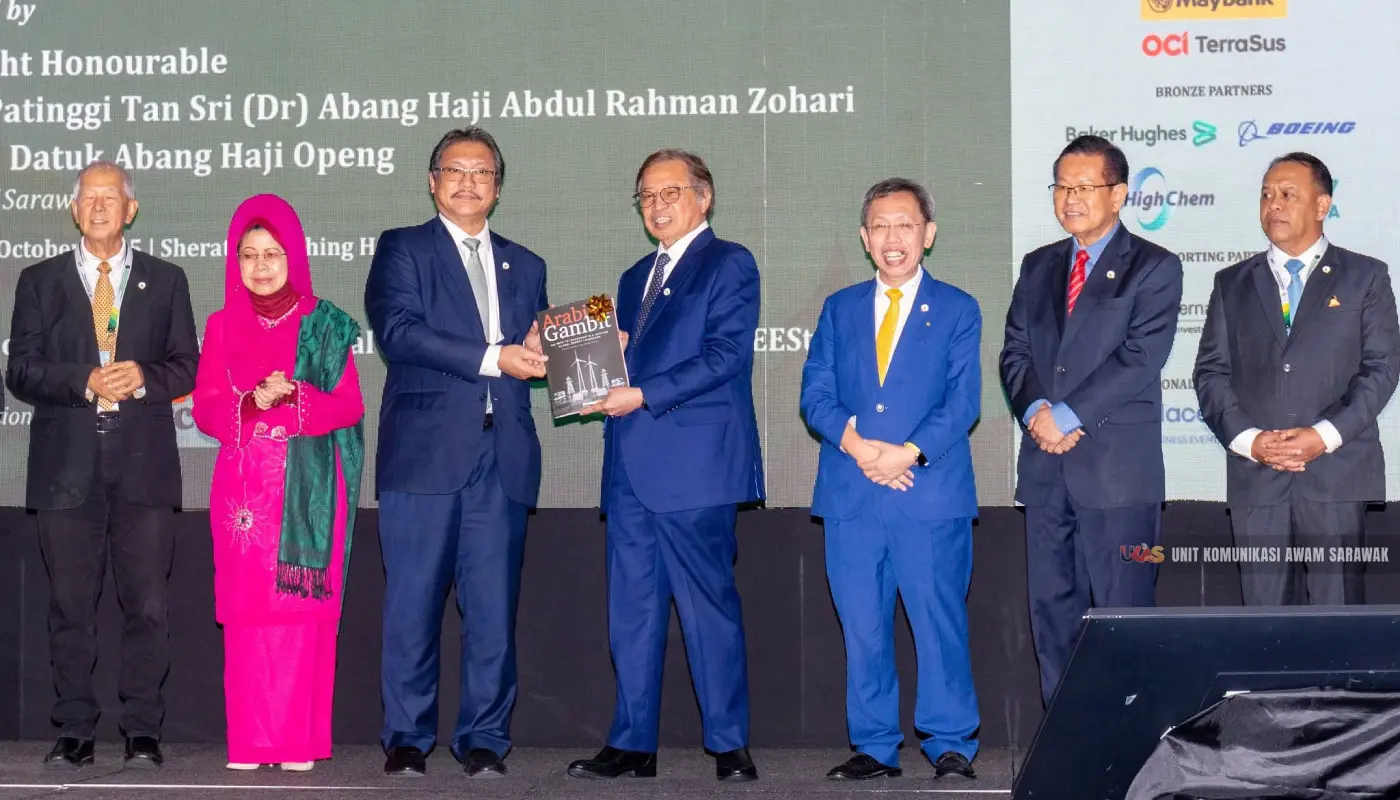KUCHING – The Sarawak Government is stepping up efforts to implement its Net Zero Strategy and Carbon Plan, underscoring its pledge to pursue sustainable, low-carbon development.
Speaking at the ‘Road to Belém: Accelerating Climate Action in Sarawak’ event, Deputy Minister for Energy and Environmental Sustainability, Datuk Dr Hazland Abang Hipni, described the plan as the principal framework charting the state’s shift to greener growth via renewable energy, hydrogen, bioenergy and nature-based solutions.
He said the vision is anchored in the Post COVID-19 Development Strategy (PCDS) 2030, which aims to foster a prosperous, inclusive and sustainable society through innovation and green growth.
According to Dr Hazland, the Net Zero Strategy and Carbon Plan are not mere policies on paper, but living commitments that will be adapted as progress and cooperation evolve.
The programme was officially launched earlier by Premier Datuk Patinggi Tan Sri (Dr) Abang Abdul Rahman Zohari Tun Datuk Abang Openg. Among the dignitaries present were Deputy Premier Datuk Amar Prof Dr Sim Kui Hian, ministers including Dato Sri Fatimah Abdullah and Dato Sri Lee Kim Shin, as well as the Brazilian Ambassador, Daniella Ortega, and other leaders.
Dr Hazland emphasised that achieving the Net Zero goal depends on collaboration across sectors, industry, academia, communities, youths and individuals alike.
“The government alone cannot achieve the Net Zero target without the active involvement of all parties,” he said.
He added that joint effort is essential to foster innovation, sustainable business models and green employment opportunities, benefiting both citizens and the environment.
As part of the event, a networking session was held involving government agencies, industry representatives and community groups to galvanise coordinated action on climate change in Sarawak.
The Carbon Plan is reported to be in its final stages and is expected to stimulate carbon market investments.
Once launched, it is intended to provide a structured implementation framework, establish a regulated carbon market, and incentivise emissions reductions in line with the state’s Net Zero goal by 2050.
Sarawak’s broader strategy, including its Sustainability Blueprint 2030, has laid out key focus areas such as energy transition, nature-based solutions, and decarbonisation of high emitting sectors.
By accelerating these initiatives, Sarawak aims to align economic growth, environmental protection and social inclusion in a balanced, forward-looking green development trajectory.




